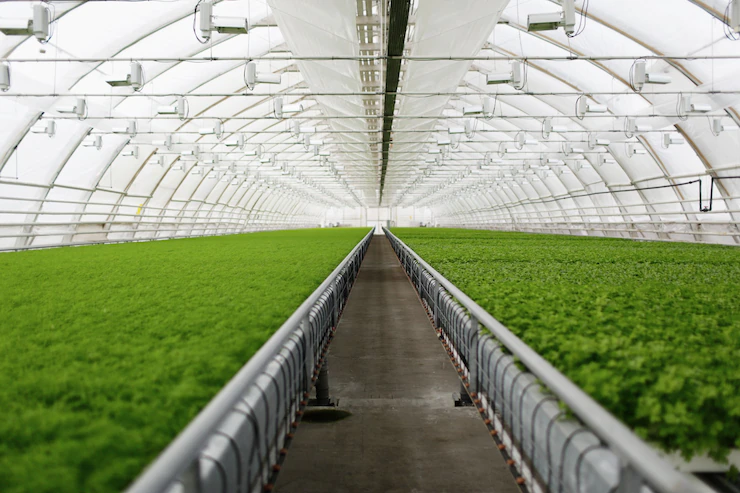Vertical farming and indoor agriculture have the potential to revolutionize agriculture in South Africa by addressing various challenges such as limited arable land, water scarcity, and climate change. Here are some key points to consider when exploring their potential in the country:
- Efficient Land Use: Vertical farming involves cultivating crops in stacked layers or vertically inclined surfaces, allowing for efficient land utilization. Given South Africa’s limited arable land, vertical farming can significantly increase crop production per unit area.
- Water Conservation: Water scarcity is a major concern in many parts of South Africa. Vertical farming systems typically use less water compared to traditional agriculture methods. Techniques like hydroponics or aeroponics allow for precise control of water delivery, minimizing wastage and optimizing water usage.
- Climate Control: Indoor agriculture provides the advantage of controlling environmental factors such as temperature, humidity, and lighting. South Africa’s diverse climate can be challenging for traditional farming, but indoor systems can create optimal growing conditions year-round, leading to increased crop yields and reduced vulnerability to weather fluctuations.
- Enhanced Crop Quality: Vertical farming offers the ability to grow crops in a controlled environment, free from pests, diseases, and harsh weather conditions. This can result in improved crop quality, consistency, and reduced reliance on chemical pesticides or herbicides.
- Year-Round Production: By utilizing artificial lighting, vertical farming can provide consistent crop production regardless of seasonal variations. This can help reduce reliance on imported produce and ensure a stable supply of fresh fruits, vegetables, and herbs throughout the year.
- Urban Food Security: Vertical farms can be established in urban areas, bringing agriculture closer to consumers. This reduces the transportation distance, resulting in fresher produce and reduced carbon emissions. It also contributes to food security by providing locally grown, nutritious food.
- Job Creation: The adoption of vertical farming and indoor agriculture can create new job opportunities in South Africa, especially in the areas of technology, engineering, research, and crop management. These emerging sectors can drive innovation and economic growth.
- Sustainability: Vertical farming can contribute to sustainable agricultural practices by minimizing the use of land, water, and synthetic inputs. By reducing the need for long-distance transportation, it also reduces carbon emissions associated with food supply chains.
However, it’s important to consider the challenges associated with vertical farming and indoor agriculture. High initial investment costs, energy requirements for artificial lighting, technical expertise, and the need for consistent monitoring and management are factors that should be carefully evaluated.
Overall, while vertical farming and indoor agriculture have great potential to address agricultural challenges in South Africa, a comprehensive analysis considering the local context, market demand, and feasibility studies is necessary for successful implementation.
Join 'Farmers Mag' WhatsApp Channel
Get the latest Farming news and tips delivered straight to your WhatsApp
CLICK HERE TO JOIN






